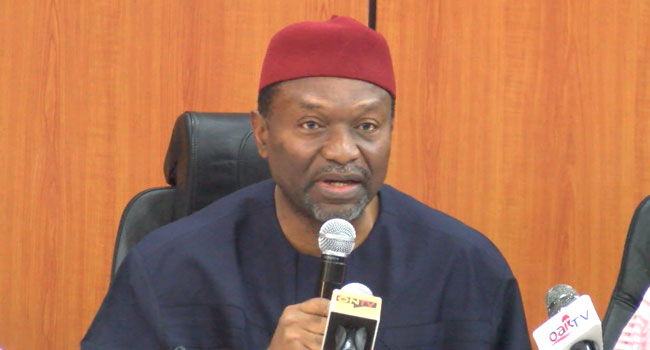This post has already been read 1857 times!
Nigeria still has ample room to borrow more whenever it needs to do so, the Minister of Budget and National Planning, Senator Udo Udoma, has said.
He explained that the country was not running any debt risk, adding that it had one of the lowest debt levels among its African peers.
“Nigeria has a sustainable debt profile with ample room to borrow more whenever we may require doing so. Nigeria runs no debt risk and the Debt Management Office carries out an annual Debt Sustainability Analysis to ensure that we stay that way,” Udoma was quoted as saying in a statement by his Special Adviser on Media, Akpandem James.
Udoma stated this in Bali, Indonesia, at the just concluded annual meetings of the International Monetary Fund and the World Bank, adding that the implementation of the Economic Recovery and Growth Plan 2017-2020 was moving Nigeria’s economy in a positive direction.
He said actions taken since the inauguration of the plan in early 2017 had helped to build buffers and appropriate measures to safeguard the economy from external shocks.
Udoma recalled that following the collapse of crude oil prices in 2014, which culminated in the country’s economy sliding into recession in 2016, the government developed the ERGP in early 2017.
He told his audience that the plan had five strategic areas of macroeconomic stability, economic diversification and growth drivers, competitiveness, social inclusion and jobs, as well as governance and other enablers.
The minister said the positive trends recorded in the country’s economic indicators since the launch of the ERGP had shown that the plan was working.
He stated, “We have been able to bring down inflation from 18.7 per cent in January last year to 11.2 per cent by August this year. Our aim is to bring inflation down to a single digit by the end of the plan period in 2020.
“The exchange rate market has been stabilised through the introduction of the investors and importers’ foreign exchange window. We have also been able to build up our external reserves from $27bn in 2016 to $43.9bn by early this month.
“Our current account, as a ratio of Gross Domestic Product, has moved from a deficit of 3.2 per cent in 2015 to a surplus of 2.8 per cent by end of last year. And this is built on export growth, including significant growth in non-oil exports that has resulted in the country recording a consistently positive trade balance since the fourth quarter of 2016.”
Udoma added that the ERGP targeted both the oil and non-oil sectors of the economy.
With specific reference to the oil sector, the minister stated that due to disruptions militants at some point in 2016, oil production was as low as one million barrel per day.
“Through positive engagements with the communities in the Niger Delta, we have improved the environment for oil production. Apart from technical hitches, from time to time, we are now able to produce up to two million barrels per day and take advantage of the more favourable international oil prices. Our target is to produce 2.3mbpd.”
[Punch]



